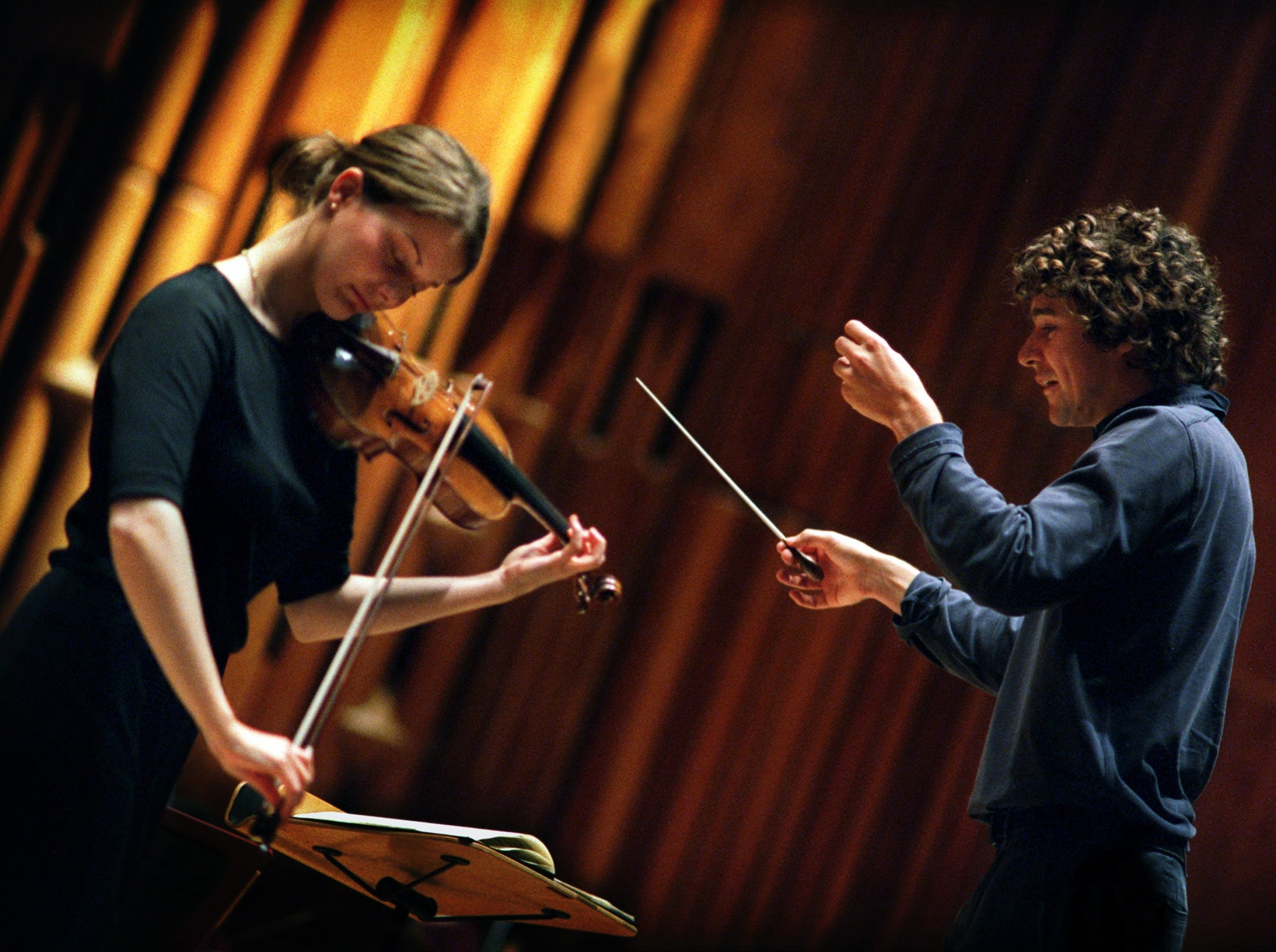IoS classical review: TheSiegfried Idyll, Barbican, London Fiftieth Birthday celebrations, Fairfield Halls, Croydon Orfeo, The Gatehouse, Highgate
Robin Ticciati and the Scottish Chamber Orchestra unwrap Wagner's musical present

Imagine the Barbican Hall as a bedroom. Imagine dozing on Christmas morning (also the day of your birthday), as Cosima Wagner did in 1869. Imagine waking, gently, to the sound of instrumentalists on the stairs, playing music of intense personal significance: music shot through with references to a lullaby, birdsong and a remark you made on the effect of a particular sunrise on the colour of your wallpaper. Imagine being the dedicatee of Wagner's Triebchen Idyll with Fidi's Birdsong and the Orange Sunrise.
Robin Ticciati's intimate, supple reading of the work now known as The Siegfried Idyll set the tone for a performance in which the Scottish Chamber Orchestra subverted the traditional associations between volume and dramatic tension. Had Cosima Wagner's "secret treasure" been played this softly at its premiere, she might have slept through the first pale threads of sound, the voile-like portamento, the faint blush of vibrato, the gilded fluttering of woodwind and horn triplets, the clean, fresh oboe solo. Where most orchestras and conductors relax at the softest dynamics, luxuriating in pulseless beauty, Ticciati and the SCO become more alert. They are good listeners, active and engaged.
Ticciati's vivid stippling and pointing of textures was less successful in Mendelssohn's Violin Concerto. Here the chaste clarinets, natural horns and suave bassoon acquired an almost bel canto delicacy in support of soloist Veronika Eberle's lissom tone. The andante was spiked with more hairpins than a beehive hairdo, while the firefly finale became a series of brilliant accelerandi, lithe and crisp. Had Eberle taken possession of the work, it could have been magical. As it was, it was hard to say who was accompanying whom.
In Beethoven's Pastoral Symphony, Ticciati builds on the SCO's long collaboration with the late Sir Charles Mackerras. His freshwater andante molto moto is fast-running, his use of rubato sparing. The effect is of an urgent whisper, an exhilaration in the cross-rhythms and the rhetoric of repeated notes in the bassline, each of which is given specific character and weight. The scherzo is a pungent whirl of unwashed bodies, the storm a Gothic fantasy that erupts from the faintest thunder to a dazzling conflagration, the Shepherd's Song exquisitely light. Odd to praise an orchestra and conductor more for their diminuendi than for the richness of their sound, but what a remarkable expression of collective imagination.
Built by the same team as the Royal Festival Hall and celebrating its fiftieth anniversary, Croydon's Fairfield Halls has yet to enjoy a revamp of similar breadth to its sister venue. Where the RFH boasts a river view, Fairfield looks out over six lanes of traffic. Yet its acoustic is to orchestras as candlelight is to tired skin. Best known for his Broadway classics, conductor John Wilson has a similar effect, hence the glossy confidence of the BBC Symphony Orchestra's performance of Vaughan Williams' overture The Wasps (broadcast on BBC Radio 3 today at 2pm). In Gerald Finzi's Clarinet Concert, Michael Collins' pure, fine sound uncurled over searing dissonances from the strings. The BBC Symphony Chorus's elegant reading of Elgar's The Music Makers completed a handsome celebration of this much-loved venue, with Catherine Wyn-Rogers' rich-hued mezzo-soprano its serene centre.
Few pubs can boast a house-band including a regal, an organ, a harpsichord, a harp, a lirone, two gambas and assorted lutes, recorders, pochettes and violins. But at the Gatehouse in Highgate, Oliver-John Ruthven's ensemble Musica Poetica London turns the pub theatre upstairs into the ducal palace of Mantua. Monteverdi's Orfeo was designed to be an intimate experience and, although Matthew Eberhardt's production buckles under a concept in which Arcadia is a repressive Christian community and Hades is a 1980s pop video, the central performances of Natalie Perez, Clare Ghigo and Edmund Hastings are beautifully direct.
'Orfeo': 4pm today (020-8340 3488)
Critic's Choice
The Jerusalem Quartet play Beethoven’s String Quartet in B flat, Op 18 No 6 and Schubert’s Quartettsatz, and are joined by Garry Hoffman for the great String Quintet in C, at Queen Elizabeth Hall, London (Wed). The Birmingham Beethoven Cycle continues as Olari Elts conducts Anna Leese, Kai Rüütel, Robert Murray, Stephan Loges, the CB SO and CB SO Chorus in Beethoven’s Mass in C, at Symphony Hall, Birmingham (Thu).
Join our commenting forum
Join thought-provoking conversations, follow other Independent readers and see their replies
Comments